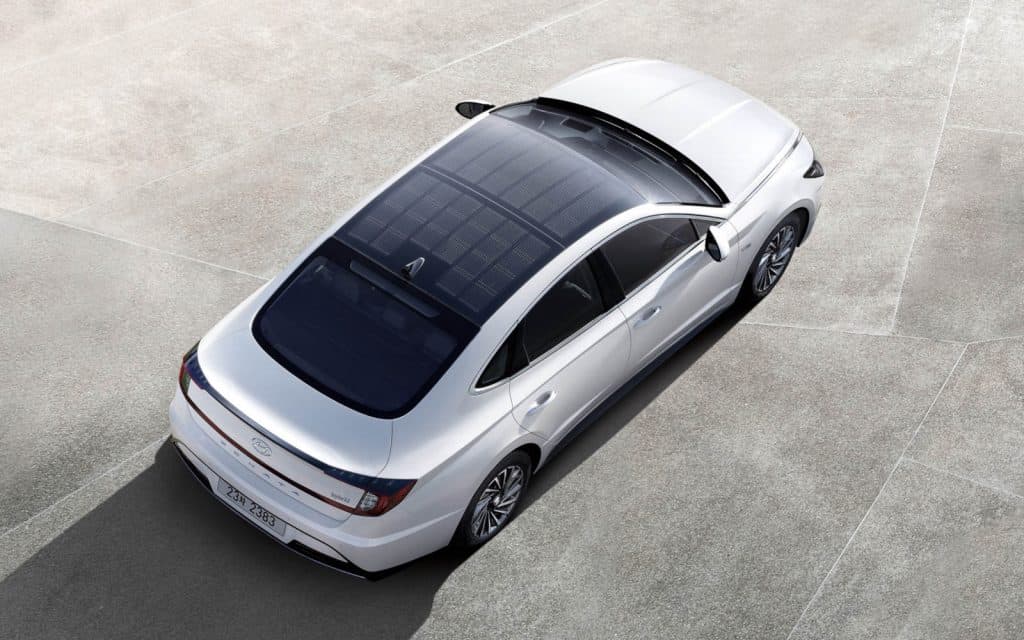 The next Hyundai Sonata will have a solar roof system charges vehicle’s battery using solar panels even while driving. The solar roof system improves fuel efficiency while preventing battery discharge and reducing CO2 emissions. With the technology, 30 to 60 per cent of a car’s battery can be charged via solar energy.
The next Hyundai Sonata will have a solar roof system charges vehicle’s battery using solar panels even while driving. The solar roof system improves fuel efficiency while preventing battery discharge and reducing CO2 emissions. With the technology, 30 to 60 per cent of a car’s battery can be charged via solar energy.
The technology will provide vehicles with additional electrical power, as well as increasing fuel efficiency and driving range.
Hyundai Motor’s solar roof charging system makes its debut on the New Sonata Hybrid. The system supports the vehicle’s electric power source, improving fuel efficiency and reducing CO2 emissions.
In the coming years, Hyundai will roll out the technology to other vehicles across its range. This is the latest application of a smart solution from Hyundai advancing the mobility industry towards a more sustainable future.
“Solar roof technology is a good example of how Hyundai Motor is moving towards becoming a clean mobility provider. The technology allows our customers to actively tackle emissions issue. We are striving to further expand the application of the technology beyond eco-friendly vehicle line up to vehicles with internal combustion engine,” says Heui Won Yang, Senior Vice President and Head of Body Tech Unit of Hyundai Motor Group.
The solar roof system includes a structure of silicon solar panels that are mounted on the car’s roof. Being able to charge even while driving, the solar roof system can charge 30 to 60 per cent of the battery per day. With 6 hours of daily charging, it is expected to increase drivers’ travel distance by an extra 1,300 km annually.
The system is composed of a solar panel and a controller. Electricity is produced when solar energy activates the solar panel’s surface, which converts this energy by using photons of light from the sun. This creates the electron-hole pairs in silicon cells, which generate solar electricity.
The electricity from this process is converted to the standard voltage by the controller, then stored in the battery. Hyundai Motor took not only efficiency but also design into account while developing the solar charging system.
While the solar roof system currently plays a supporting role, it opens up perspectives for vehicles no longer need fossil fuel to operate.
The New Sonata Hybrid is equipped with the world’s first Active Shift Control (ASC) technology and solar roof charging system. It boasts a hybrid-exclusive design with enhanced dynamic elements, as well as a Smartstream G2.0 GDi HEV engine and 6-speed hybrid transmission. Hyundai’s new model also supports a ‘Digital Key’ function via a dedicated smartphone app.
The New Sonata is now on sale in Korea and will soon be sold in North America. Hyundai currently has no plans to expand sales of this model to the European market.